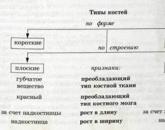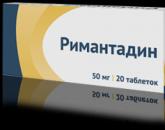Why numb right side of the language. Tongue cramp
The tongue is more sensitive than any other part of our body. This is the most perfect organ in terms of mobility, taking the main part in creating articulate speech. It consists of muscles and four active external muscles, which allow you to move the tongue in different directions, changing its density and shape. The tongue's anchor is the hyoid bone, which is moved by six muscles.
Cramp language causes
The language is involved in many actions:
- accompaniment of taste functions;
- chewing;
- swallowing;
- sucking;
- the formation of noise and sound.
Lingual convulsions are a lesion of the hypoglossal nerve. They differ in etiology and mechanisms of origin. They can be tonic, clonic or mixed. Since the tongue is in a closed cavity, its convulsions are not as noticeable as, for example, facial ones. The only exceptions are cases when he comes out of his mouth and throws saliva. You can trace the spasm if you carefully monitor and know the mechanism of pronouncing letters.
The cause of seizures can be inflammatory processes oral cavity or as a result of neurological manifestations of the lingual nerve, as in hysteria, epilepsy or chorea.
Spasm of the muscles of the tongue - glossism
Gloss spasm shows the same tension of both halves of the tongue. For hysteria is characterized by the manifestation of half spasm, which is called hemiglossospasm. A spasm can manifest itself in the form of a tick, like sticking the tongue out when trying to remove non-existent food lumps from the gums. Symptom eyes and tongue when trochaic manifests itself in the fact that a person cannot for a long time keep your tongue out with your eyes closed. After some time, there is a movement of language of a violent nature, and eyes open.
The prognosis of such diseases is not always favorable.
Lingual cramp - stuttering
Stuttering - convulsive movements of the laryngeal and articulatory muscles, which occur in the beginning or middle of speech. A person is forced to linger on some kind of sound or their group. Symptoms are similar to tonic and clonic convulsions. In the first case, the patient cannot move from the sound stop to articulate the next sound. In the second case, the stuttering person re-forms words, syllables and sounds. There are four stages in the disease, from rare attacks to serious personal problems.
Stuttering of neurotic origin may occur in a healthy person as a result of neurosis or stress. Often it occurs in children with hereditary or acquired diseases. nervous system. The causes of the disease are provoking and predisposing.
To provocative include:
- sudden fear or fear;
- imitation;
- accelerated speech;
- multilingual families
Predisposing causes:
- heredity;
- birth and intrauterine injuries;
- infectious diseases on the background of overwork and nervous exhaustion
The conditions conducive to the appearance of speech disorders include:
- lack of emotional development;
- rhythm disturbance;
- increased reactivity in relationships with others;
- hidden mental disorders
When stuttering breaks the breathing process. A large amount of air is consumed during inhalation and exhalation. The closure in the glottis interferes with the pronunciation of sounds, while the larynx abruptly and quickly moves down, up and moves forward. Often there is a curvature of the nasal septum and hypertrophy of the shells. During an attack, a person can throw back his head, clench his fists, close his eyes, stomp his feet. Stuttering in one degree or another leads to mental disorders, the fear of uttering difficult sounds. In some cases, this leads to dumbness. The child avoids speech situations, which narrows his social circle and affects the overall development. He becomes cautious, suspicious, begins to feel a big difference between himself and his peers and considers himself to be flawed and inferior. This in turn aggravates the symptoms of the disease.
For the diagnosis of speech disorders, you must have the following signs:
- violation of the rhythm of speech;
- hesitation;
- attempt to replace words with grimaces and tics
The success of treatment depends largely on the correct and timely diagnosis. Correction of speech disorders is carried out in classes with a speech therapist. Stuttering neurotic origin in young children is successfully treated in speech therapy groups with the use of play psychotherapy and rhythmics. Family therapy is also important when using distraction, suggestion and relaxation. The child is taught to talk in tact to the movements of the fingers and sings. Since the disease is caused by organic brain damage, as a drug treatment use antispasmodics and tranquilizers in minimum doses. Additionally, treatment includes massage and physiotherapy. In seventy percent of cases in the treatment of stuttering in children, the prognosis is favorable.
Preventive measures can be divided into two groups. One is aimed at maintaining and strengthening children's health, and the second is at organizing speech development. For this, it is important to have good nutrition, adherence to the day regimen, the absence of overvoltage and stress. Speech development should be aimed at broadening the horizons about the world, objects and phenomena. It is necessary to teach the child to speak leisurely and smoothly, consistently express soi thoughts. New information children need to report dosed and gradually.
Language cramps: species
When we breathe quietly with our mouth closed, the tongue is at the bottom oral cavity. Its tip touches the hard palate, the upper teeth, is raised, forming a closure. It is also located during sucking.
Convulsive lifting of the top of the tongue
Lingual spasms with raising the apex of the tongue are the most common and frequent symptom of stuttering. During a strong convulsion, the tongue with great force rests against the sky, and the channel of speech is closed. It looks like a temporary silence. If the cramp is weak, the air passes between the tongue and the sky, which leads to the repetition of certain sounds. This condition can be determined by feeling the area under the jaw. The bottom of the mouth is tight and tense due to the contraction of the chin-like muscle.
Convulsive rise of the tongue root
Convulsive lifting of the tongue root is a frequent symptom of stuttering. The most characteristic feature of this condition is the sudden lifting of the root of the tongue back and up. This leads to tight closure. The tongue is closed to the sky for the time of the whole convulsion and compressed into a com. The sublingual muscles and the hyoid bones are involved in the convulsive movements. Sometimes this condition causes pain, which indicates the strength of tense muscles. It is practically impossible to utter a whistling or blown sound. Severe seizures often occur due to the fact that the nasal canal closes and air is blocked. The respiratory mechanism continues to work and there is stagnation of blood.
Banishing tongue cramp
Banishing spasm of the tongue - the rarest of pagan convulsions. It is expressed in the fact that the tongue stretches horizontally and freezes, going beyond the edges of the teeth. This is similar to tonic tension and often the tongue twitches, coming out of the mouth and coming back. In some cases, the tongue rests on the lower teeth or lower jaw. The patient feels a long and sometimes painful muscle tension.
Sublingual cramp
This cramp often occurs with others. But sometimes it can be observed as an independent one. With a strong convulsive tension of the muscles of the tongue, weak contractions of the pagan muscles appear. The voice of a stuttering person at this time becomes low, the head is tilted, and the chin touches the chest. Sometimes sublingual cramp joins spasms of the voice muscles. It happens that in this state falls lower jawand the mouth opens.
Numbness of the tongue or tingling, which patients most often describe as "spines, pins or needles in the tongue" are not unusual. Such a symptom in medicine is called paresthesia of the tongue and, as a rule, is accompanied by a slight burning sensation or pain. Numbness of the tongue can occur along with muscle weakness, cramps, pain or twitching of facial tissues, blurred vision. With complete numbness of the tongue or partial (only the tip of the tongue can numb), its sensitivity and ability to taste taste is lost.
Causes of language numbness
There are a lot of reasons why the language becomes numb. A rather common cause of numbness of the tongue is nerve damage during unsuccessful dental procedures (wisdom tooth extraction or root canals), maxillofacial surgery, brain damage, or injury. Stroke is an example of brain damage, and numbness of the tongue may be the result of this disease. A blunt head injury, a fracture of the jaw can cause nerve damage, which can also lead to numbness of the entire tongue or part of it.
Allergy - another common causeWhy numb tip of the tongue. Food allergies often cause swelling of the tongue or numbness. Numbness of tongue can be side effect actions of antibiotics, the appearance of which should immediately consult with your doctor.
Numbness of the tongue can also occur during pregnancy, especially in the third trimester, as a side symptom of increased pressure (hypertension) and edema (late gestosis).
Sometimes the cause of numbness of the tongue may be a number of diseases, a symptom of which is the tingling of the tongue:
- multiple sclerosis - a neurological disorder that can cause numbness in many parts of the body, including the tongue;
- hypothyroidism - thyroid dysfunction;
- migraine;
- transient ischemic attack - a temporary sequence of symptoms that can be a warning of an impending stroke;
- lyme disease - a disease resulting from a tick bite;
- brain aneurysm;
- spinal cancer;
- a brain tumor;
- syphilis;
- bell's palsy is a disease directly related to facial numbness.
Excessive alcohol consumption, smoking, deficiency or excess of minerals in the body (calcium, sodium, potassium), vitamin B12 deficiency, radiation and radiation therapy in the treatment of cancer, poisoning with heavy metals increases the risk of paresthesia of the tongue.
What to do?
If the tongue becomes numb, regardless of whether there are other symptoms of the disease (weakness, sudden headache, loss of vision or its deterioration, speech defects), urgently contact your doctor to exclude more serious disorders in your body or their timely treatment. Before visiting your doctor for a better diagnosis of your condition, determine the answers to the following questions:
- When did you first notice the numbness of the tongue?
- Have you had a head injury?
- Have you had maxillofacial surgery lately?
- Do you have other symptoms related to numbness of the tongue?
- At what time of day does the language go silent more, and at which less?
- What drugs do you take?
Hopefully, our article has helped you answer the question of why language is numb and what needs to be done in this situation.
Any unpleasant symptom with a constant appearance should not be ignored. After all, many serious diseases at first often manifest themselves only with minor impairments of well-being. So one of the symptoms of the alarming type is numbness of the tongue. Sometimes its appearance is due to completely harmless factors, and does not require any special correction. But this is not always the case. Let's talk on www.site about the features of the phenomenon of numbness of the tongue, treatment, causes and symptoms as well.
Why does numbness of tongue arise, what reasons lead to it?
Numbness of the tongue of the doctor is classified as a violation of sensitivity or as paresthesia. A temporary violation of this type can be explained by a small injury of the cranial or spinal nerves, their sensitive branches pass directly into the region of the tongue. A similar condition may occur after the wisdom tooth is eliminated.
Temporary numbness of the tongue can be triggered by the consumption of certain drugs, among which is cough medicine Libeksin or anesthetic Bellastezin, it is often discharged when it is necessary to eliminate pain and spasms in the gastrointestinal tract (stomach or intestines).
Chronic numbness of the tongue can be observed with ailments of the nervous system, which are associated with disorders of the nerves, providing its full innervation. So, for example, with neuritis of the glossopharyngeal nerve, there is a defeat in its sensitivity in the posterior region of the tongue, and problems with the lingual nerve cause changes in sensitivity in the posterior or lateral divisions of the organ.
In some cases, the numbness of the tongue can be explained by the compression of a nerve with a tumor lesion or edema, which is associated with an inflammatory lesion or allergic reactions.
More to possible reasons numbness of the language include degenerative processes triggered by circulatory disorders or metabolic disorders in the body. This problem can be explained by chronic intoxication with alcohol and other toxic elements. Another numbness of the tongue can be observed with diabetes mellitus or with a deficiency of certain vitamins, for example, nicotinic acid.
Violation of the sensitivity of the tongue can occur with improper bite, hormonal problems, functional or organic lesions of the nervous system (both vegetative and central).
How exactly does numbness of the tongue manifest, what are its symptoms?
If numbness is not accompanied by a change in the appearance of the tongue, doctors talk about the development of glossary. This pathological condition develops gradually. Initially, the phenomenon of sensitivity disorders are short-lived. But over time, the seizures can be repeated, and their duration and intensity may increase. Most often, the patient's condition is disturbed in the late afternoon, especially after physical or psychological stress.
Over time, edema and a slight increase in the papillae of the tongue may join pathological processes. Directly on the lower surface of this organ, the veins expand, and a decrease in salivation is also observed.
Sometimes numbness of the tongue is accompanied by burning, tingling, itching and other unpleasant symptoms.
Treatment of numbness of the tongue
Successful correction of numbness of the tongue is possible only with the correct identification of the causes of such a violation. First of all, doctors eliminate all factors that can irritate the tongue. At the same time, the wrong taste is treated, incorrectly placed dentures are replaced, dental deposits are removed, the sharp edges of crowns or fillings are smoothed, metal fillings or dentures with dissimilar metals are changed, etc.
Patients with such disorders are shown dietary intake, all food that can irritate the tongue should be excluded from the diet.
Concerning drug treatment, doctors often use sedatives, drugs that improve blood circulation. Also, drugs of choice often become vitamin-mineral complexes and other compounds that optimize metabolism. As is known, a violation of the sensitivity of the tongue is often associated with problems in the nervous system, so the treatment of such a symptom may continue for a long time.
In the event that a violation of the sensitivity of the tongue is caused by tumor lesions, the patient is shown to undergo surgery. If the disease is malignant, appropriate treatment is given - chemotherapy or radiation therapy.
If numbness is triggered by an allergy, antihistamine medicines can help the patient. In addition, in this case it is extremely important to determine which substance became the cause of the development of allergy and exclude contact with it.
If the loss of sensitivity of the tongue has developed against the background of psychogenic disorders, patients are shown a change in lifestyle, as well as taking antidepressants and neuroleptics. Excellent effect also provides courses of psychotherapy.
With the systematic appearance of numbness of the tongue, it is necessary to consult a doctor. You will need the advice of a dentist, neurologist and endocrinologist. In most cases, such an unpleasant symptom can be successfully treated.
Causes numbness of the tongue (paresthesia) or a certain part of it is glossary. At the same time, there are no visual changes in the tissue structure of the muscular organ. Pathology is not an independent disease, but acts as a symptom concomitant diseasedamage to nerve endings.
Numbness can occur not only in the organ itself, but also affect the lips, chin, upper palate. Sometimes paresthesia affects all mucous membranes of the mouth. Most often, the glosalgia suffers from women older than 40 years; in men, pathology is rarely diagnosed.
Causes of paresthesia
Why numb, pricking the tongue in humans, the main causes of pathology:
Violation of sensitivity in the mouth can affect only the tip of the tongue, its side, sometimes the entire organ and palate becomes numb, taste is lost, the degree of damage depends on what causes the pathology.
Signs of paresthesia
The main symptoms of the disease:
- partial or complete numbness of the tongue;
- tingling, burning, goosebumps in the muscular organ;
- discomfort during talking and eating;
- dryness in the mouth;
- wandering pains;
- sometimes bacterial plaque forms on the mucous membrane;
- most often patients suffer from nervous disorders;
- growths, bumps or tumors may be present on the mucosal surface.
 Why does the tip, side, or the entire surface of the tongue go numb? Often numbness of the tongue is caused by a pathological fear of patients before the upcoming treatment at the dentist or another doctor. When farrowing in patients reveal a sleep disturbance, increased excitability, or these people, on the contrary, suffer from prolonged depressions.
Why does the tip, side, or the entire surface of the tongue go numb? Often numbness of the tongue is caused by a pathological fear of patients before the upcoming treatment at the dentist or another doctor. When farrowing in patients reveal a sleep disturbance, increased excitability, or these people, on the contrary, suffer from prolonged depressions.
Why is the tip of the tongue, lips, cheek, what causes pathology? This happens after unsuccessful treatment of pulpitis or tooth extraction. Due to the fault of the doctor, the nerve endings are injured, the tip of the tongue grows numb, and the surrounding mucous membranes can lose sensitivity. Usually, this condition goes away on its own in 1-3 months. If paresthesia persists for a longer time, it is necessary to undergo treatment by a neurologist.
Methods for the diagnosis of paresthesia
With various injuries visually visible signs of tissue damage, pain is localized in one place. With the development of glossalgia reduced sensitivity when exposed to the body, the structure of the mucous membranes is not changed.
If the numbness of the tongue is caused by neuralgia, the pain is short-term, spreads along the nerve ending. When glossalgia pain syndrome has no clear localization, it is associated with a lesion of the vagus nerve.
What causes numbness on one side? When neuritis occurs one-sided numbness of the tongue. In this area, sensitivity is completely lost, and while eating, sensations, on the contrary, increase.
In case of disorders of the nervous system, consultation and examination of a neuropathologist, brain tomography are necessary.
Treatment of paresthesia
If the tip of the tongue or another part of it has become numb, has lost sensitivity, you should seek the help of a doctor to identify the cause of the disease. You may need to be examined by a dentist, general practitioner, gastroenterologist, endocrinologist, psychotherapist.
 Therapy of the oral cavity is aimed at eliminating numbness of the tip of the tongue, the potential causes of pathology, reduce pain, normalize taste sensations.
Therapy of the oral cavity is aimed at eliminating numbness of the tip of the tongue, the potential causes of pathology, reduce pain, normalize taste sensations.
Assign the use of sedatives, lingual nerve blockade, injections of B vitamins, iron. Also used applications with painkillers, antiseptic rinse. Treatment of mucous membranes with vitamin A helps to increase salivation, eliminate dryness and plaque. If the tip of the tongue becomes numb, physiotherapeutic procedures are prescribed.
In the presence of growths, cones that cause numbness of the tongue, it is necessary to consult an oncologist. Pathological tumors excised surgically. If the disease is caused by disorders of the nervous system, sometimes it is enough to talk with the doctor and the appointment of sedatives.
Paresthesia can be a symptom of a serious disease, therefore, when the sensitivity of the oral mucous membranes decreases, you should seek medical help.
Popular
- Why seals may appear
- Blood disorders in children
- What can not drink a pill
- Blood disorders in children
- Blood disorders in children
- Bones: structure, composition, types of bones, types of compounds and their characteristics
- How many live with lung cancer
- Influenza in children: how to treat, what can and cannot be done to parents, what medicines will help?
- "They are people too ..." - you say
- What helps "Prednisolone"




